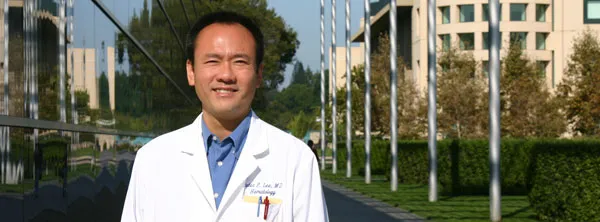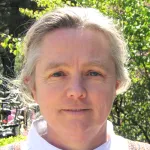
Stanford Report - May 20th, 2009 - by Krista Conger
Human immune cells communicate constantly with one another as they coordinate to fight off infection and other threats. Now researchers at the School of Medicine have shown that muffling a key voice in this conversational patter is an early step in the progression of human cancers.
Silencing an inter-cell signaling mechanism called the interferon pathway may be one way newly developing cancers gain the upper hand. It may also explain the immune dysfunctions seen in many cancer patients and why cancer immunotherapies are often ineffective.
"Over half of cancer patients mount an immune response against their own cancer," said hematologist Peter P. Lee, MD, associate professor of hematology. "So, why does it so often fail? Our research indicates that cancers interfere with a critically important immune signaling pathway. There's a possibility that correcting this defect may one day become part of a useful treatment for many types of cancer."
Lee is the senior author of the research, which was published in the May 18 advance online version of Proceedings of the National Academy of Sciences.
Clues that the interferon pathway is important in fighting off cancers come from mouse models in which the pathway has been artificially disrupted. These animals develop spontaneous tumors at higher rates than normal animals with functional interferon signaling—showing that the immune system quashes many cancers in their infancy. Some viruses are also known to inhibit the interferon pathway.
"It's a very dynamic interaction," said Lee. "If the immune system is successful in stopping a developing cancer, we never know about it because no disease develops. If the cancer cell population overcomes the immune system, you get cancer." In other words, physicians and patients see only the immune system's defeats. This adds an additional hurdle for new cancer treatments called immunotherapies meant to work by stimulating the patient's immune system to attack tumor cells.
Lee and his colleagues had previously shown that the interferon signaling pathway was compromised in melanoma patients. In the current study, the researchers investigated whether patients with two other types of cancer—breast and gastrointestinal—also showed the same defect. They isolated immune cells called lymphocytes in blood samples from patients with three types of cancers (32 breast cancer patients, 12 melanoma patients and 11 gastrointestinal cancer patients) as well as from 28 age-matched healthy patients.
They then compared the response of three classes of lymphocytes—B cells, T cells and NK cells—to exposure to interferons. They found that lymphocytes from breast cancer patients, as well as melanoma and gastrointestinal cancer patients, expressed significantly lower levels of interferon-responsive signaling molecules than did lymphocytes from healthy patients.
"They have a clear defect in the interferon signaling pathway," said Lee. When the researchers looked more closely at the lymphocytes from breast cancer patients, they found that the defect was equally severe in samples from people with early- and late-stage cancers—indicating that the problem must arise soon after the cancer begins to develop—and that it was present regardless of whether the patient had ever been treated with chemotherapy. Finally, the researchers showed that the immune cells from the breast cancer patients responded less efficiently to external activation signals.
"It's now looking like the interferon pathway may harbor a general immune defect in many types of cancers," said Lee. He and his colleagues are working to pinpoint what exactly is going haywire in the pathway and why. They are also investigating whether the problems are likely to block the effectiveness of newer immunotherapies that rely on the presence of a functional immune system.
"Whatever functional defect these immune cells have likely impacts the effectiveness of both active immunotherapy, like cancer vaccines, and passive immunotherapy, like cellular therapies," said Lee. "If these forces are still at play in vivo, the patient's immune response to these types of treatments will be blunted."
Other Stanford co-authors include postdoctoral scholars Rebecca Critchley-Thorne, PhD; Ning Yan, PhD; Andrea Miyahira, PhD; research assistant Diana Simons; associate professor of surgery Frederick Dirbas, MD; associate professor of surgery Denise Johnson, MD; associate professor of dermatology Susan Swetter, MD; professor of medicine Robert Carlson, MD; associate professor of medicine George Fisher, MD; assistant professor of radiation oncology Albert Koong, MD; and professor of statistics Susan Holmes, PhD. The research was funded by a Department of Defense Era of Hope Scholar Award.

